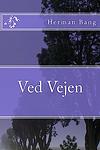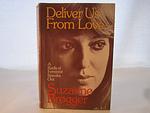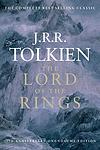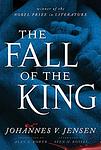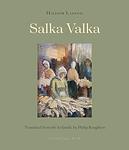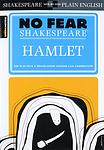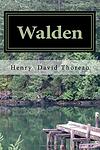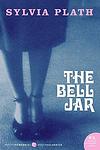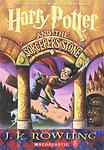50 Classics You Must Read Before You Die
This is one of the 284 lists we use to generate our main The Greatest Books list.
-
Ved Vejen by Herman Bang
The book is a poignant portrayal of life in a small Danish town in the late 19th century, focusing on the story of a young woman named Katinka, who is trapped in a loveless marriage to a stationmaster. Her life is marked by monotony and unfulfilled desires until she meets a dashing engineer, with whom she develops a deep, albeit platonic, relationship. The narrative delves into themes of social constraints, personal longing, and the quiet despair of everyday existence, highlighting the emotional turmoil and inner life of the protagonist against the backdrop of a rigid and unforgiving social structure.
-
The Diary Of A Parish Clerk by Steen Steensen Blicher
"The Diary of a Parish Clerk" is a poignant novella that takes the reader through the life of a young man in 18th-century rural Denmark, as recorded in his own diary entries. Born into modest means and serving as a parish clerk, the protagonist's life is marked by his unrequited love for a local squire's daughter, which ultimately leads to tragedy. The narrative, rich with details of Danish country life, social hierarchies, and personal struggles, is a testament to the enduring power of love and the human spirit in the face of societal constraints and personal misfortunes.
-
Deliver Us From Love by Suzanne Brogger
"Deliver Us From Love" is a provocative exploration of the complexities of love and human relationships, set against the backdrop of contemporary society. The narrative delves into the lives of various characters, each grappling with their own romantic and existential dilemmas. Through a series of interconnected stories, the book examines the paradoxes of love—its capacity to both liberate and imprison individuals. The author challenges conventional notions of love, fidelity, and happiness, offering a candid and often unsettling look at the desires and contradictions that drive human behavior.
-
Butterfly Valley by Inger Christensen
"Butterfly Valley" is a poetic masterpiece that delves into the delicate interplay between nature and human existence through the motif of butterflies. The collection, structured as a sonnet cycle, showcases the author's intricate use of language and form to explore themes of transformation, beauty, and the ephemeral quality of life. Through vivid imagery and philosophical reflection, the poems weave a tapestry that contemplates the cyclical patterns of nature and the impact of human consciousness on the world, inviting readers to ponder the profound connections between the microcosm of a butterfly's habitat and the broader universe.
-
The Plague by Albert Camus
The novel is set in the Algerian city of Oran during the 1940s, where a deadly plague sweeps through, causing the city to be quarantined. The story is told through the eyes of a doctor who witnesses the horror and suffering caused by the disease. The narrative explores themes of human resilience, solidarity, and the struggle against the absurdities of life. It also examines how individuals and society respond to death and disease, creating a profound meditation on the nature of existence and human endurance.
-
Heart of Darkness by Joseph Conrad
This classic novel follows the journey of a seaman who travels up the Congo River into the African interior to meet a mysterious ivory trader. Throughout his journey, he encounters the harsh realities of imperialism, the brutal treatment of native Africans, and the depths of human cruelty and madness. The protagonist's journey into the 'heart of darkness' serves as both a physical exploration of the African continent and a metaphorical exploration into the depths of human nature.
-
Dependency by Tove Ditlevsen
"Dependency" is the harrowing autobiographical account of a woman's struggle with addiction and the complexities of her personal life in mid-20th-century Copenhagen. Through a raw and intimate narrative, the book explores the protagonist's turbulent relationships, her quest for love and artistic recognition, and her descent into drug dependency. The memoir provides a candid look at the cycles of abuse and recovery, painting a poignant portrait of a woman grappling with her inner demons and societal expectations in a time when such topics were often taboo.
-
The Lover by Marguerite Duras
"The Lover" is a poignant exploration of forbidden love, power dynamics, and colonialism. Set in 1930s French Indochina, it tells the story of a tumultuous and passionate affair between a 15-year-old French girl and her wealthy, older Chinese lover. The narrative delves into the complexities of their relationship, the societal norms they defy, and the inevitable heartbreak that follows. The protagonist's struggle with her family's poverty and her mother's mental instability further complicates the story, making it a compelling exploration of love, desire, and societal constraints.
-
Childhood Street by Tove Ditlevsen
"Childhood Street" is a poignant memoir that delves into the author's early years growing up in a working-class neighborhood in Copenhagen during the early 20th century. Through a series of vivid vignettes, the narrative captures the complexities of family life, the struggles of social class, and the author's burgeoning sense of identity amidst the backdrop of a changing society. The memoir is a reflective journey of self-discovery, illustrating the ways in which the innocence of childhood is often interwoven with moments of hardship and the stark realities of adult life.
-
Crime and Punishment by Fyodor Dostoevsky
A young, impoverished former student in Saint Petersburg, Russia, formulates a plan to kill an unscrupulous pawnbroker to redistribute her wealth among the needy. However, after carrying out the act, he is consumed by guilt and paranoia, leading to a psychological battle within himself. As he grapples with his actions, he also navigates complex relationships with a variety of characters, including a virtuous prostitute, his sister, and a relentless detective. The narrative explores themes of morality, redemption, and the psychological impacts of crime.
-
The Year of Magical Thinking by Joan Didion
This book is a raw and honest exploration of grief and mourning, written by a woman who lost her husband of 40 years to a heart attack while their only child lay comatose in the hospital. The narrative delves into the year following her husband's death, a year marked by grief, confusion, and a desperate hope for things to return to normal. The author's poignant reflections on death, love, and loss serve as a powerful testament to the resilience of the human spirit.
-
Oedipus the King by Sophocles
"Oedipus the King" is a tragic play that revolves around the life of Oedipus, the king of Thebes, who is prophesied to kill his father and marry his mother. Despite his attempts to avoid this fate, Oedipus unknowingly fulfills the prophecy. When he discovers the truth about his actions, he blinds himself in despair. The play explores themes of fate, free will, and the quest for truth, highlighting the tragic consequences of human hubris and ignorance.
-
Madame Bovary by Gustave Flaubert
Madame Bovary is a tragic novel about a young woman, Emma Bovary, who is married to a dull, but kind-hearted doctor. Dissatisfied with her life, she embarks on a series of extramarital affairs and indulges in a luxurious lifestyle in an attempt to escape the banalities and emptiness of provincial life. Her desire for passion and excitement leads her down a path of financial ruin and despair, ultimately resulting in a tragic end.
-
The Lord of the Rings by J. R. R. Tolkien
This epic high-fantasy novel centers around a modest hobbit who is entrusted with the task of destroying a powerful ring that could enable the dark lord to conquer the world. Accompanied by a diverse group of companions, the hobbit embarks on a perilous journey across Middle-earth, battling evil forces and facing numerous challenges. The narrative, rich in mythology and complex themes of good versus evil, friendship, and heroism, has had a profound influence on the fantasy genre.
-
The Great Gatsby by F. Scott Fitzgerald
Set in the summer of 1922, the novel follows the life of a young and mysterious millionaire, his extravagant lifestyle in Long Island, and his obsessive love for a beautiful former debutante. As the story unfolds, the millionaire's dark secrets and the corrupt reality of the American dream during the Jazz Age are revealed. The narrative is a critique of the hedonistic excess and moral decay of the era, ultimately leading to tragic consequences.
-
The Sorrows of Young Werther by Johann Wolfgang von Goethe
This classic novel follows the emotional journey of a young artist named Werther, who falls deeply in love with a beautiful woman named Lotte, only to discover that she is already engaged to another man. His unrequited love and deep despair eventually lead him to take his own life. The story, told through letters written by Werther, explores themes of love, loss, and the tragic consequences of emotional turmoil.
-
Faust by Johann Wolfgang von Goethe
The book is a tragic play in two parts that tells the story of a scholarly man named Faust, who becomes dissatisfied with his life and makes a pact with the devil, Mephistopheles. In exchange for unlimited knowledge and worldly pleasures, Faust agrees to give his soul to Mephistopheles after death. The narrative explores themes of ambition, despair, love, and redemption, ultimately leading to Faust's salvation.
-
The Tin Drum by Günter Grass
The novel tells the story of Oskar Matzerath, a boy who decides on his third birthday that he will stop growing and remain a three-year-old forever. Oskar is gifted with a tin drum by his mother, which he uses to express his emotions and thoughts. Living in Danzig during the rise of Nazi Germany, Oskar's refusal to grow is a form of protest against the adult world. The book is a blend of magical realism and historical fiction, providing a unique perspective on the horrors of World War II and the post-war era in Germany.
-
Hunger by Knut Hamsun
This novel is a psychological journey through the mind of a starving young writer in 19th century Norway. Driven by pride and stubbornness, he refuses to accept help and instead chooses to endure severe hunger and the mental and physical deterioration it causes. His struggle is not only with his physical condition but also with his own mind as he battles hallucinations, mood swings, and an increasingly distorted perception of reality. The book is a profound exploration of poverty, mental illness, and the human will to survive.
-
Great Expectations by Charles Dickens
A young orphan boy, living with his cruel older sister and her kind blacksmith husband, has an encounter with an escaped convict that changes his life. Later, he becomes the protégé of a wealthy but reclusive woman and falls in love with her adopted daughter. He then learns that an anonymous benefactor has left him a fortune, leading him to believe that his benefactor is the reclusive woman and that she intends for him to marry her adopted daughter. He moves to London to become a gentleman, but his great expectations are ultimately shattered when he learns the true identity of his benefactor and the reality of his love interest.
-
Niels Lyhne by Jens Peter Jacobson
The novel is a coming-of-age story that follows the intellectual and emotional development of its eponymous protagonist, a young Danish poet who struggles with the existential dilemmas of his time. Throughout his life, he grapples with the loss of religious faith, the search for meaning in a secular world, and the pursuit of artistic truth, all while experiencing the pangs of unrequited love and personal tragedy. The protagonist's journey is one of self-discovery and disillusionment, as he seeks to reconcile his idealistic visions with the harsh realities of life, ultimately embodying the spirit of a modern, introspective individual facing the existential uncertainties of the 19th century.
-
Nineteen Eighty Four by George Orwell
Set in a dystopian future, the novel presents a society under the total control of a totalitarian regime, led by the omnipresent Big Brother. The protagonist, a low-ranking member of 'the Party', begins to question the regime and falls in love with a woman, an act of rebellion in a world where independent thought, dissent, and love are prohibited. The novel explores themes of surveillance, censorship, and the manipulation of truth.
-
The Fall Of The King by Johannes V. Jensen
The book is a historical novel set in 16th-century Denmark, telling the story of Mikkel Thøgersen, a student who becomes embroiled in the political and social upheavals of the time. As he rises and falls in fortune, Mikkel interacts with various historical figures, including King Christian II, navigating the complexities of power, ambition, and rebellion. The narrative explores themes of destiny, the nature of leadership, and the tumultuous period of the Count's Feud in Denmark, painting a vivid picture of the era's culture and the human condition amidst the backdrop of a country in turmoil.
-
The Notebook: The Proof ; The Third Lie : Three Novels by Agota Kristof
"The Notebook: The Proof ; The Third Lie : Three Novels" is a trilogy of novels that follow the lives of twin brothers, living through the harsh realities of war, separation, and betrayal. The first novel, "The Notebook," tells the story of their survival as children in a rural town at the end of World War II. The second book, "The Proof," continues their story into adulthood, exploring the effects of their traumatic childhood. The final book, "The Third Lie," delves into the complexities of their relationship and the secrets they kept from one another. The trilogy is a poignant exploration of identity, love, and the enduring bond of brotherhood.
-
Salka Valka by Halldor Laxness
"Salka Valka" is a stirring narrative set in a small Icelandic fishing village, where the eponymous heroine, a fiercely independent and strong-willed girl, comes of age amidst the harsh social and economic conditions of early 20th century Iceland. The novel explores themes of poverty, class struggle, and gender roles through the lens of Salka's life, as she defies the traditional expectations of women in her community by taking on work typically reserved for men and advocating for workers' rights. Her journey is marked by her relationships with various village inhabitants, including her idealistic mother, and the complex interplay between personal ambition, societal pressures, and the quest for a better life.
-
Moby Dick by Herman Melville
The novel is a detailed narrative of a vengeful sea captain's obsessive quest to hunt down a giant white sperm whale that bit off his leg. The captain's relentless pursuit, despite the warnings and concerns of his crew, leads them on a dangerous journey across the seas. The story is a complex exploration of good and evil, obsession, and the nature of reality, filled with rich descriptions of whaling and the sea.
-
The Hour of the Star by Clarice Lispector
"The Hour of the Star" is a poignant narrative that explores the life of Macabéa, a poor, unattractive, and naive typist living in the slums of Rio de Janeiro. The story is narrated by Rodrigo S.M., a sophisticated writer who struggles with how to accurately portray Macabéa's simple existence and her tragic fate. The novel delves into themes of identity, poverty, and the human condition, presenting a stark contrast between the lives of the rich and the poor, the educated and the ignorant, and the beautiful and the plain.
-
One Hundred Years of Solitude by Gabriel Garcia Marquez
This novel is a multi-generational saga that focuses on the Buendía family, who founded the fictional town of Macondo. It explores themes of love, loss, family, and the cyclical nature of history. The story is filled with magical realism, blending the supernatural with the ordinary, as it chronicles the family's experiences, including civil war, marriages, births, and deaths. The book is renowned for its narrative style and its exploration of solitude, fate, and the inevitability of repetition in history.
-
Winter’s Child by Dea Trier Morch
"Winter's Child" is a poignant exploration of the complexities of motherhood and the emotional tapestry of family life. Set against the backdrop of a cold and unforgiving winter, the novel follows the journey of a group of women, each grappling with the joys and challenges of raising children. As they navigate their relationships, both with their offspring and with each other, the narrative delves into themes of love, sacrifice, and the enduring bonds that connect generations. With a sensitive portrayal of the female experience, the book offers a touching reflection on the intricacies of parenthood and the resilience required to nurture life in the face of adversity.
-
Lolita by Vladimir Nabokov
The novel tells the story of Humbert Humbert, a man with a disturbing obsession for young girls, or "nymphets" as he calls them. His obsession leads him to engage in a manipulative and destructive relationship with his 12-year-old stepdaughter, Lolita. The narrative is a controversial exploration of manipulation, obsession, and unreliable narration, as Humbert attempts to justify his actions and feelings throughout the story.
-
The Golden Ass (Metamorphoses): Or Metamorphoses by Apuleius
This classic novel follows the protagonist, a young man who is transformed into a donkey after meddling with magic he doesn't understand. His journey takes him through a series of adventures, where he encounters a variety of characters from different walks of life and gets into all sorts of trouble. Through his experiences, he gains a deeper understanding of the human condition and the world around him. The narrative also includes several mythological tales and allegories, including the famous story of Cupid and Psyche. Eventually, the protagonist regains his human form through divine intervention, having learned valuable lessons about life, love, and humanity.
-
Lucky Per by Henrik Pontoppidan
The novel follows the life of Per Sidenius, a young man from a devoutly religious family, who rebels against his provincial upbringing to seek fortune and success as an engineer in the bustling world of Copenhagen. Ambitious and driven, Per dreams of freeing Denmark from its reliance on foreign energy through his innovative engineering projects. Throughout his journey, he confronts the rigid class structures of Danish society, engages in tumultuous relationships, and struggles with his own internal conflicts and existential doubts. Despite his initial rapid ascent, Per ultimately faces the consequences of his relentless pursuit of material success, leading him to reevaluate the true meaning of fulfillment and happiness in life.
-
Symposium by Plato
In "Symposium", a group of notable men including philosophers, playwrights, and politicians gather at a banquet and decide to each give a speech in praise of the god of love. Each speech presents a different perspective on love, ranging from the purely physical to the spiritual. The dialogue culminates with the speech of Socrates, who presents a philosophical view of love as a means of ascending to contemplation of the divine.
-
The Notebooks of Malte Laurids Brigge by Rainer Maria Rilke
"The Notebooks of Malte Laurids Brigge" is a semi-autobiographical novel narrated by a young man from Denmark living in Paris, who is trying to understand the world and his place in it. The protagonist is a poet and a dreamer, who spends his time observing and reflecting on the people and situations around him. The book is a collection of his thoughts, observations, and musings, which often revolve around themes of death, solitude, history, and the nature of existence. It's a deep and introspective exploration of the human condition and the nature of creativity.
-
Midnight's Children by Salman Rushdie
The novel tells the story of Saleem Sinai, who was born at the exact moment when India gained its independence. As a result, he shares a mystical connection with other children born at the same time, all of whom possess unique, magical abilities. As Saleem grows up, his life mirrors the political and cultural changes happening in his country, from the partition of India and Pakistan, to the Bangladesh War of Independence. The story is a blend of historical fiction and magical realism, exploring themes of identity, fate, and the power of storytelling.
-
The Catcher in the Rye by J. D. Salinger
The novel follows the story of a teenager named Holden Caulfield, who has just been expelled from his prep school. The narrative unfolds over the course of three days, during which Holden experiences various forms of alienation and his mental state continues to unravel. He criticizes the adult world as "phony" and struggles with his own transition into adulthood. The book is a profound exploration of teenage rebellion, alienation, and the loss of innocence.
-
Wuthering Heights by Emily Brontë
This classic novel is a tale of love, revenge and social class set in the Yorkshire moors. It revolves around the intense, complex relationship between Catherine Earnshaw and Heathcliff, an orphan adopted by Catherine's father. Despite their deep affection for each other, Catherine marries Edgar Linton, a wealthy neighbor, leading Heathcliff to seek revenge on the two families. The story unfolds over two generations, reflecting the consequences of their choices and the destructive power of obsessive love.
-
Hamlet by William Shakespeare
This classic play revolves around the young Prince of Denmark who is thrown into a state of emotional turmoil after his father's sudden death and his mother's quick remarriage to his uncle. The prince is visited by the ghost of his father who reveals that he was murdered by the uncle, prompting the prince to seek revenge. The narrative explores themes of madness, revenge, and moral corruption as the prince navigates the complex political and emotional landscape of the Danish court.
-
Frankenstein by Mary Shelley
This classic novel tells the story of a young scientist who creates a grotesque but sentient creature in an unorthodox scientific experiment. The scientist, horrified by his creation, abandons it, leading the creature to seek revenge. The novel explores themes of ambition, responsibility, guilt, and the potential consequences of playing God.
-
Walden by Henry David Thoreau
This work is a reflection upon simple living in natural surroundings, inspired by the author's two-year experience of living in a cabin near a woodland pond. Filled with philosophical insights, observations on nature, and declarations of independence from societal expectations, the book is a critique of the complexities of modern civilization and a call to appreciate the beauty and simplicity of the natural world. It explores themes such as self-reliance, solitude, and the individual's relationship with nature.
-
Jammers Minde by Leonora Christina
"Jammers Minde" is a memoir that vividly recounts the experiences of a high-born woman who spent two decades imprisoned in a 17th-century Danish castle. The author, a daughter of King Christian IV, writes with raw emotion and detail about the hardships and injustices she endured during her incarceration. Her narrative not only provides a personal perspective on her resilience and coping mechanisms but also serves as a valuable historical document, offering insights into the political intrigue and societal norms of her time. The work is a testament to the strength of the human spirit in the face of adversity and a powerful portrayal of the author's unyielding determination to maintain her dignity and identity despite her circumstances.
-
Mrs. Dalloway by Virginia Woolf
The novel chronicles a day in the life of Clarissa Dalloway, a high-society woman in post-World War I England, as she prepares for a party she is hosting that evening. Throughout the day, she encounters various characters from her past, including a former suitor and a shell-shocked war veteran. The narrative jumps back and forth in time and in and out of different characters' minds, exploring themes of mental illness, existentialism, and the nature of time.
-
Anna Karenina by Leo Tolstoy
Set in 19th-century Russia, this novel revolves around the life of Anna Karenina, a high-society woman who, dissatisfied with her loveless marriage, embarks on a passionate affair with a charming officer named Count Vronsky. This scandalous affair leads to her social downfall, while parallel to this, the novel also explores the rural life and struggles of Levin, a landowner who seeks the meaning of life and true happiness. The book explores themes such as love, marriage, fidelity, societal norms, and the human quest for happiness.
-
Seven Gothic Tales by Isak Dinesen
"Seven Gothic Tales" is a collection of short stories set in the 19th century, each with a unique blend of humor, horror, and romanticism. The tales, steeped in supernatural elements and psychological depth, explore themes of love, betrayal, and identity. The stories are populated by a variety of characters from different social classes and backgrounds, each facing their own moral dilemmas and existential crises. The author's vivid descriptions and atmospheric settings contribute to the gothic tone of the book.
-
Buddenbrooks by Thomas Mann
"Buddenbrooks" is a novel that chronicles the decline of a wealthy north German merchant family over the course of four generations. The narrative focuses on the fluctuating fortunes and internal struggles of the family, reflecting the societal changes and economic decline of the period. The family's personal and business relationships, their moral values, and their struggle to maintain social status are all explored against the backdrop of the changing political and social landscape.
-
The World Of Yesterday by Stefan Zweig
The book is a poignant memoir reflecting on the transformative events and cultural atmosphere of Europe before World War I, through the interwar years and into the rise of the Nazis. It captures the author's experiences of growing up in a vibrant pre-war Vienna, the intellectual richness and artistic achievements of the time, as well as the profound sense of loss as the world he knew disintegrated into chaos and totalitarianism. With a mix of nostalgia and despair, the narrative serves as a lament for the lost world of European culture and as a warning about the fragility of peace and the human cost of war.
-
The Bell Jar by Sylvia Plath
The novel follows the story of a young woman who wins a guest editorship at a magazine in New York City and, after a series of personal and professional disappointments, suffers a mental breakdown and returns to her family, where she continues to struggle with depression and suicidal thoughts. The protagonist's experiences in psychiatric institutions and her attempts to reclaim her life are depicted with brutal honesty, making it a poignant exploration of mental illness and the societal pressures faced by women in the mid-20th century.
-
Den Kroniske Uskyld by Klaus Rifbjerg
The novel is a coming-of-age story set in post-war Denmark, focusing on the intense friendship and emotional turmoil of two teenage boys, Janus and Tore. As they navigate the complexities of adolescence, their bond is tested by the allure of new relationships, societal expectations, and the struggles with their own identities. The narrative delves into themes of innocence, sexuality, and rebellion, painting a vivid portrait of youth caught between the innocence of childhood and the responsibilities of adulthood. Through the boys' experiences, the book explores the bittersweet transition into maturity and the chronic innocence that lingers amidst the harsh realities of growing up.
-
Epic of Gilgamesh by Unknown
This ancient Mesopotamian epic follows the story of Gilgamesh, a demigod king who rules over the city of Uruk. Unhappy with his reign, the gods create a wild man named Enkidu to challenge him. However, Gilgamesh and Enkidu become close friends and embark on several adventures together, including defeating the demon Humbaba and killing the Bull of Heaven. After Enkidu's death, Gilgamesh becomes obsessed with finding immortality, leading him on a journey to meet Utnapishtim, the only human who has been granted eternal life. The narrative explores themes of friendship, mortality, and the meaning of life.
-
Harry Potter And The Philosopher's Stone by J. K Rowling
The story follows a young boy, Harry Potter, who learns on his 11th birthday that he is the orphaned son of two powerful wizards and possesses unique magical powers of his own. He is summoned from his life as an unwanted child to become a student at Hogwarts, an English boarding school for wizards. There, he meets several friends who become his closest allies and help him discover the truth about his parents' mysterious deaths, the dark wizard who wants to kill him, and the magical stone that holds immense power.
Gyldendal (Denmark Publisher), 50 Books
This list is from Gyldendal, the largest publisher in Denmark. This is what the translated description says:
We asked Gyldendal's fiction editors about their greatest reading experiences. Here are their picks for 50 classics you should read before you die. Find out which ones you have already read, which ones you should re-read and, not least, which ones you should read for the first time. Happy reading!
Added 2 months ago.
This list has a weight of 60%. To learn more about what this means please visit the Rankings page.
Here is a list of what is decreasing the importance of this list:
- Voters: specific voter details are lacking
- List: Creator of the list, sells the books on the list
- Voters: are mostly from a single country/location
If you think this is incorrect please e-mail us at [email protected].
